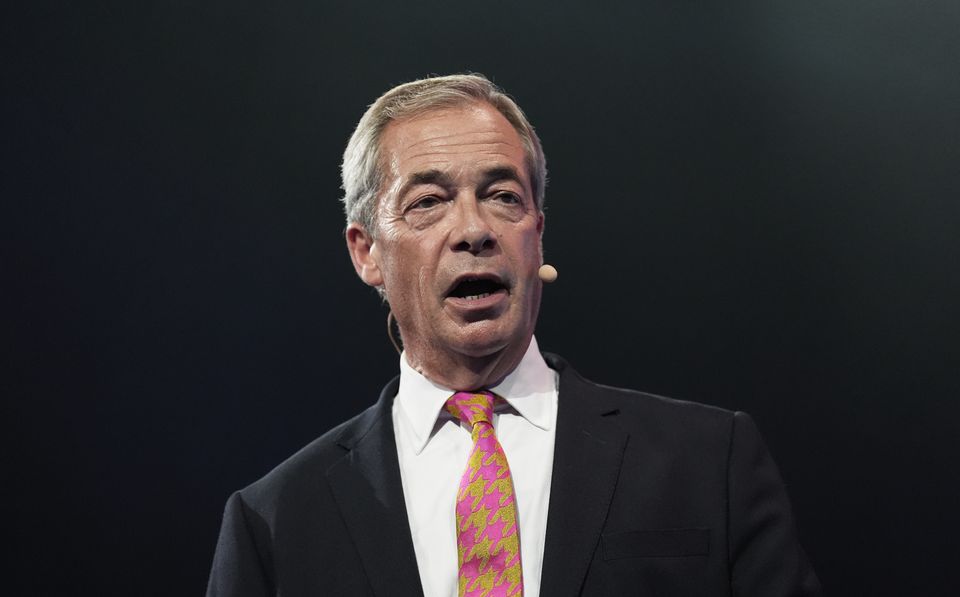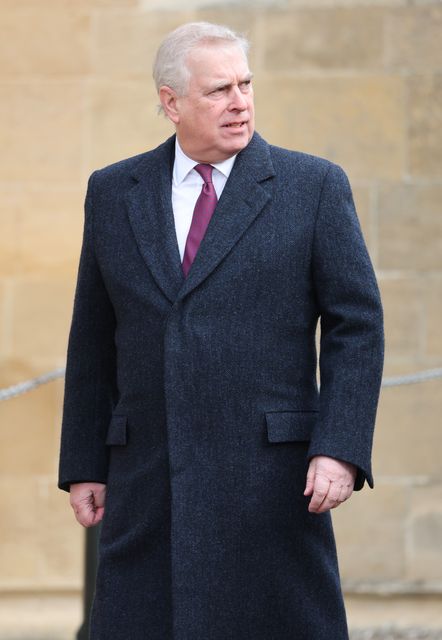Sir Keir Starmer admitted he was “concerned about the challenge that China poses” after an alleged spy was able to form links at the heart of the British establishment.
The suspect, known only as H6, is said to have become a “close” confidant of the Duke of York and has also been pictured with senior politicians including Lord David Cameron and Baroness Theresa May.
The Prime Minister defended his approach of engaging with Xi Jinping’s government despite concerns over security and human rights abuses, but a senior Tory claimed the UK was now viewed as the “soft underbelly” of a key intelligence alliance because of Sir Keir’s approach to China.
Speaking during a visit to Norway, Sir Keir would not comment on any conversations he may have had with the royal family over the H6 case.
But he said: “Of course we are concerned about the challenge that China poses.”
In November Sir Keir became the first British prime minister since 2018 to meet the Chinese president.
Sir Keir said: “Our approach is one of engagement, of co-operating where we need to co-operate, particularly on issues like climate change, to challenge where we must and where we should, particularly on issues like human rights and to compete when it comes to trade.
“That’s the strategic approach that we have set out as a UK Government.”
Prime Minister Sir Keir Starmer was asked about the China situation during a press conference with Norwegian counterpart Jonas Gahr Store (Leon Neal/PA)
Government minister Jim McMahon admitted it was a concern that H6 had been able to “slip through the net”.
MPs could seek to use parliamentary privilege to reveal H6’s identity, but Mr McMahon said the legal protection offered to parliamentarians should be used with caution.
Local government minister Mr McMahon told Times Radio: “It’s a concern for all of us that work in Parliament, that the trust has been breached in the way that it has, and that somebody has been found to slip through the net.
“That clearly is a concern. Whether or not that requires somebody being named in Parliament under parliamentary privilege, I think, is a separate matter.”
Two of the Commons’ most prominent critics of Xi Jinping’s administration in Beijing warned about the extent of the activities of the United Front Work Department (UFWD), the arm of the Chinese state H6 is alleged to have been associated with.
Former Tory leader Sir Iain Duncan Smith, who is seeking to raise the case in a Commons urgent question, said the H6 case was “the tip of the iceberg”.
“The reality is that there are many, many more involved in exactly this kind of espionage that’s taking place,” he told BBC Radio 4’s Today programme.
“The reality for us is very simple – China is a very clear threat.”
He urged the Labour administration to push ahead with the foreign influence registration scheme (Firs), which was established under the Conservatives but is yet to be implemented.
Sir Iain dismissed suggestions the scheme was not ready to be implemented when the Tories left office, claiming Labour ministers were seeking “an excuse not to upset China” by implementing the register of lobbyists.
The Prime Minister insisted “we’ve been working on it from day one in Government, and there will be an update coming shortly”.
Nigel Farage has said his Reform UK party is prepared to use parliamentary privilege to name the alleged agent (Joe Giddens/PA)
Sir Iain also suggested the Labour government’s approach to engaging with Beijing had put the UK at odds with the US, Canada, Australia and New Zealand, its intelligence allies in the Five Eyes group.
“We are now seen, I think, by our Five Eyes security partners, as the soft underbelly of that alliance and that’s a real worry,” Sir Iain said.
Former security minister Tom Tugendhat told BBC Breakfast: “I’m absolutely certain that there are members of the United Front Work Department who are active right now in attempting to influence journalism, academics, politics, and the whole lot. This is really the tip of the iceberg.
“And so the story, I can understand why it’s been about Prince Andrew, but it’s not really about Prince Andrew. It’s about the way the Chinese Communist Party is seeking to exert influence here in the United Kingdom.”
Nigel Farage has said his Reform UK party is prepared to use parliamentary privilege to name the alleged agent, known only as H6, in the chamber unless the courts lift an anonymity order that protects his identity.
H6 was first excluded from Britain by then-home secretary Suella Braverman in 2023, when the Home Office said he was believed to have carried out “covert and deceptive activity” for the Chinese Communist Party.
The Duke of York’s office said he ceased all contact with the individual after concerns were raised (Chris Jackson/PA)
Judges at a specialist tribunal in London last week ruled Mrs Braverman had been “entitled to conclude” that he “represented a risk to the national security” after he launched an appeal against the decision.
The businessman had brought a case to the Special Immigration Appeals Commission (SIAC) after his initial exclusion in 2023 but his appeal was dismissed.
At a hearing in July, the tribunal was told that an adviser to Andrew said he could act on the duke’s behalf when dealing with potential investors in China, and that H6 had been invited to the duke’s birthday party in 2020.
A letter referencing the event from the aide, Dominic Hampshire, was discovered on H6’s devices when he was stopped at a port in November 2021.
The letter also said: “You should never underestimate the strength of that relationship … Outside of his closest internal confidants, you sit at the very top of a tree that many, many people would like to be on.”
H6 was later informed that he was believed by UK authorities to be connected to the UFWD, which is tasked with conducting influence campaigns.
The Duke of York’s office said he ceased all contact with the individual after concerns were raised.


